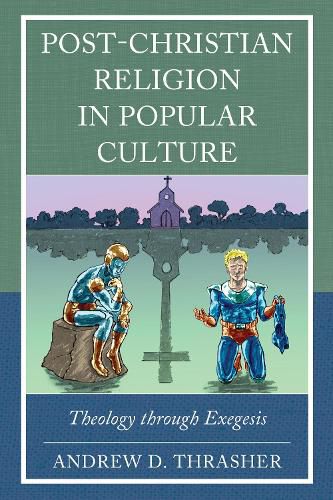Readings Newsletter
Become a Readings Member to make your shopping experience even easier.
Sign in or sign up for free!
You’re not far away from qualifying for FREE standard shipping within Australia
You’ve qualified for FREE standard shipping within Australia
The cart is loading…






Post-Christian Religion in Popular Culture: Theology through Exegesis analyzes several theological exegeses of contemporary popular culture as post-Christian scripture. It includes analyses of the Marvel Cinematic Universe, The Lion King, and Cloud Atlas, the television shows Lucifer and Shameless, and contemporary pop punk and alternative music. Through an application of three hermeneutical methods (re-enchantment, resourcement, and rescription), a prophetic and apocalyptic critique of modernity, and an analysis of the late-modern human condition, Andrew D. Thrasher argues how popular culture recites post-Christian religious and theological messages marked by a post-disenchantment theology. He also argues that the consumption of these messages shapes and informs what the contemporary world finds believable, credible, and desirable in a post-Christian context.
$9.00 standard shipping within Australia
FREE standard shipping within Australia for orders over $100.00
Express & International shipping calculated at checkout
Post-Christian Religion in Popular Culture: Theology through Exegesis analyzes several theological exegeses of contemporary popular culture as post-Christian scripture. It includes analyses of the Marvel Cinematic Universe, The Lion King, and Cloud Atlas, the television shows Lucifer and Shameless, and contemporary pop punk and alternative music. Through an application of three hermeneutical methods (re-enchantment, resourcement, and rescription), a prophetic and apocalyptic critique of modernity, and an analysis of the late-modern human condition, Andrew D. Thrasher argues how popular culture recites post-Christian religious and theological messages marked by a post-disenchantment theology. He also argues that the consumption of these messages shapes and informs what the contemporary world finds believable, credible, and desirable in a post-Christian context.